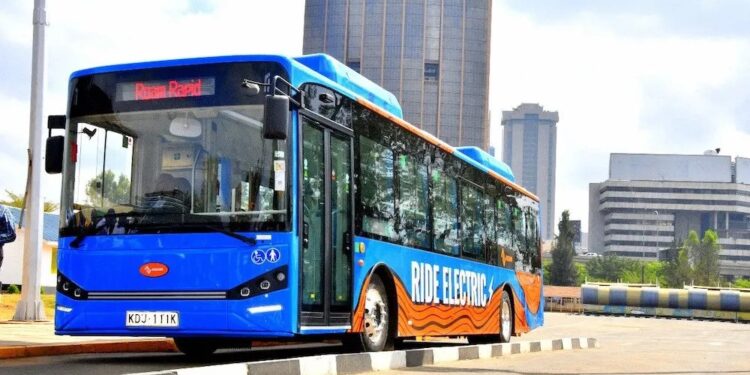Kenya is making significant strides in its journey toward sustainable transportation, with the introduction of electric buses as a pioneering effort in the African continent. This initiative not only marks a critical step in reducing carbon emissions but also positions Kenya as a leader in embracing green technology within the public transportation sector. This article explores the key aspects of Kenya’s move toward electric buses, highlighting its impact on sustainability, public transport, and the broader environment.
The Rise of Electric Buses in Kenya
Kenya’s journey toward sustainable transport has been accelerated by the introduction of electric buses, a project that reflects the nation’s commitment to reducing its carbon footprint. The electric buses are designed to replace traditional diesel-powered vehicles, which are notorious for their high emissions. This transition is part of a broader strategy to embrace green technology and align with global efforts to combat climate change.
The move to electric buses is particularly significant in urban areas like Nairobi, where traffic congestion and pollution have been longstanding issues. By replacing conventional buses with electric ones, Kenya is addressing both environmental concerns and improving air quality in densely populated cities.
Benefits of Electric Buses for Public Transport
Electric buses offer a range of benefits that make them an ideal choice for public transport in Kenya. One of the most notable advantages is the reduction in greenhouse gas emissions. Unlike diesel buses, electric buses produce zero tailpipe emissions, which significantly lowers the amount of harmful pollutants released into the atmosphere.
Additionally, electric buses are quieter than their diesel counterparts, contributing to noise reduction in urban areas. This is particularly beneficial in cities where noise pollution is a major concern. Furthermore, the operational costs of electric buses are generally lower, as they require less maintenance and are more energy-efficient. This makes them a cost-effective solution for public transport providers in the long run.
Challenges and Opportunities
While the introduction of electric buses in Kenya presents numerous opportunities, it also comes with challenges. One of the primary challenges is the need for adequate infrastructure to support electric vehicles. This includes the availability of charging stations, which are currently limited in number. To fully realize the potential of electric buses, Kenya will need to invest in expanding its charging infrastructure.
Another challenge is the initial cost of acquiring electric buses, which is higher compared to traditional buses. However, the long-term savings on fuel and maintenance, coupled with environmental benefits, make this investment worthwhile. There is also the opportunity for Kenya to become a hub for electric vehicle technology in Africa, potentially attracting investments and creating jobs in the green technology sector.
Government and Private Sector Collaboration
The success of Kenya’s electric bus initiative hinges on collaboration between the government and the private sector. The Kenyan government has shown strong support for sustainable transport, with policies that encourage the adoption of electric vehicles. Incentives such as tax breaks and subsidies could further accelerate the transition to electric buses.
The private sector also plays a crucial role, particularly in terms of investing in infrastructure and developing innovative solutions to overcome existing challenges. Companies involved in the production, distribution, and maintenance of electric buses are key players in ensuring the success of this initiative.
Impact on the Environment and Future Prospects
The shift to electric buses in Kenya has the potential to make a significant impact on the environment. By reducing reliance on fossil fuels, Kenya can lower its greenhouse gas emissions and contribute to global climate change mitigation efforts. This move also sets a precedent for other African nations, demonstrating that sustainable transport solutions are both feasible and beneficial.
Looking ahead, the expansion of electric buses could pave the way for broader adoption of electric vehicles in Kenya, including cars, motorcycles, and trucks. This would further enhance the country’s sustainability efforts and position it as a leader in green transportation on the continent.




